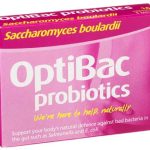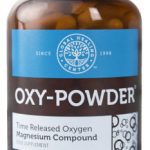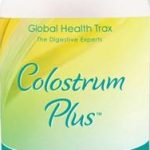For many of us, mercifully, an upset tummy – or unhappy digestive system – isn’t a regular occurrence and more an uncomfortable irritation that sets us back a little when it occurs. For others, however, it’s a far bigger deal; it can be an unpleasant, painful and frequent experience that leaves them feeling debilitated on a regular basis. In some cases, such people may be suffering from what’s known as ulcerative colitis (UC), which on occasions, along with the different but related Crohn’s disease, is referred to as inflammatory bowel disease (IBD)1.
Symptoms-wise, ulcerative colitis is far from fun. Recurring diarrhoea, possibly containing blood, mucus or pus, as well as abdominal pain and the urge to empty your bowels more than you’d wish are very common; sometimes people suffer heavy fatigue and appetite and weight loss too1. Why do these things happen? Well, Ulcerative colitis is a long-term condition (its symptoms can be very frequent but equally not, as it goes into remission and comes back).
It’s caused by the colon (the gut or small intestine) and the rectum become inflamed. This sees small ulcers forming on the lining of the colon, which often bleed and produce pus1. The reasons why this happens are debated by experts, but it’s commonly held that the condition’s autoimmune-related – the thinking goes that the immune system confuses harmless bacteria in the gut for harmful organisms and, thus, attacks the colon’s tissue1.
Ulcerative Colitis Treatment
Owing to the relatively widespread nature of UC – there’s a reported 900,000 sufferers in the United States alone2 – treatment for the condition is nowadays available in all different kinds, shapes and sizes. Some of these forms of treatment are pretty obvious; others less so. Here are those worthy of note:
- Medication – as you’d expect, prescribed drugs are one of the most prevalent UC treatments and often they’re corticosteroids, but it depends on the condition’s severity and how the sufferer responds; in fact, after a year’s worth of medication treatment, around one third (30%) of patients experience remission3,
- Surgery – for non-responsive sufferers, surgery is common and may involve two- or three-stage procedures; indeed, recent research suggests that three-stage surgery may not actually be as safe as was originally believed
- Acupuncture – moxibustion (heating an acupuncture site) in addition to treatment via a traditional UC drug has apparently shown good results of late, while a study found that use of the Kuijiening plaster, again in addition to medication, appears to be better than taking the medication on its own
- Probiotics and other supplements – finally, naturally-derived supplementation is gaining more and more attention as a UC treatment8 and rightly so, as results of probiotics and other ulcerative colitis supplements look favorable9; the following, as well as many more, are all available viaThe Finchley Clinic and come highly advised among our customers for promoting improved bowel health and treating the symptoms of ulcerative colitis:
 Saccharomyces Boulardii – a probiotic that may support good bowel health, comfort and function; also recognised as the number one probiotic for managing diarrhoea.
Saccharomyces Boulardii – a probiotic that may support good bowel health, comfort and function; also recognised as the number one probiotic for managing diarrhoea.
 Oxy-Powder – designed for optimum colon health via helping to cleanse and oxygenate the intestines.
Oxy-Powder – designed for optimum colon health via helping to cleanse and oxygenate the intestines.
 Colostrum Plus – a supplement that promotes digestive health, tackles inflammatory problems and supports the immune system.
Colostrum Plus – a supplement that promotes digestive health, tackles inflammatory problems and supports the immune system.
References:
1. ‘Ulcerative colitis’. NHS Choices. http://www.nhs.uk/conditions/ulcerative-colitis/Pages/Introduction.aspx. Last reviewed: 17 Mar 2016.
2. Manfred E. ‘True Stories: Living with Ulcerative Colitis’. Health Line. http://www.healthline.com/health/ulcerative-colitis-take-control-true-stories. Last reviewed: 15 Feb 2017.
3. Mehta S. J., Silver A. R. and Lindsay J. O. ‘Review article: strategies for the management of chronic unremitting ulcerative colitis’. Aliment Pharmacol Ther. 38 (2): 77-97. doi: 10.1111/apt.12345. July 2013.
4. Reinisch W., Sandborn W. J., Panaccione R., Huang B., Pollack P. F., Lazar A. and Thakkar R. B. ‘52-week efficacy of adalimumab in patients with moderately to severely active ulcerative colitis who failed corticosteroids and/or immunosuppressants’. Inflamm Bowel Dis. 19 (8): 1700-9. doi: 10.1097/MIB.0b013e318281f2b7. July 2013.
5. Hicks C. W., Hodin R. A. and Bordeianou L. ‘Possible overuse of 3-stage procedures for active ulcerative colitis’. JAMA Surg. 148 (7): 658-64. doi: 10.1001/2013.jamasurg.325. July 2013.
6. Zhang L. C., Zhang S., Zhong W., Long J. X., Li X. N. and Chen L. S. ‘Observation on clinical effect of ZHUANG medicine mediated thread moxibustion combined with medication for patients with ulcerative colitis’. Zhen Ci Yan Jiu. 38 (5): 399-402. Oct 2013.
7. Huang L., Cai Z., Zhu Y. and Wan H. ‘Treatment of ulcerative colitis with spleen and kidney yang deficiency by kuijiening plaster: a randomized controlled study’. Zhongguo Zhen Jiu. 33 (7): 577-81. July 2013.
8. Kruis W. ‘Probiotics’. Dig Dis. 31 (3-4): 385-7. doi: 10.1159/000354706. 14 Nov 2013.
9. De Greef E., Vandenplas Y., Hauser B., Devreker T. and Veereman-Wauters G. ‘Probiotics and IBD’. Acta Gastroenterol Belg. 76 (1): 15-9. Mar 2013.
